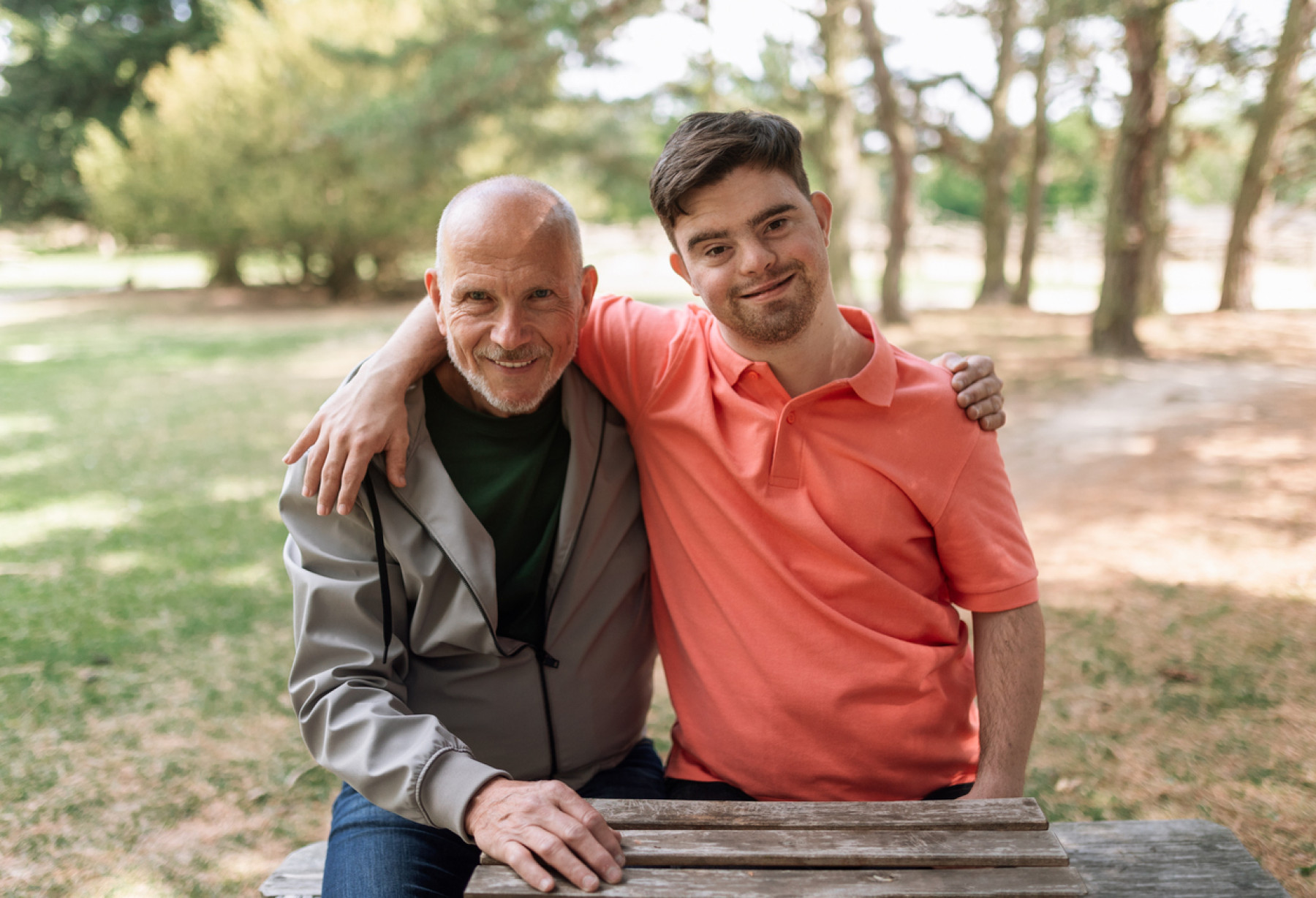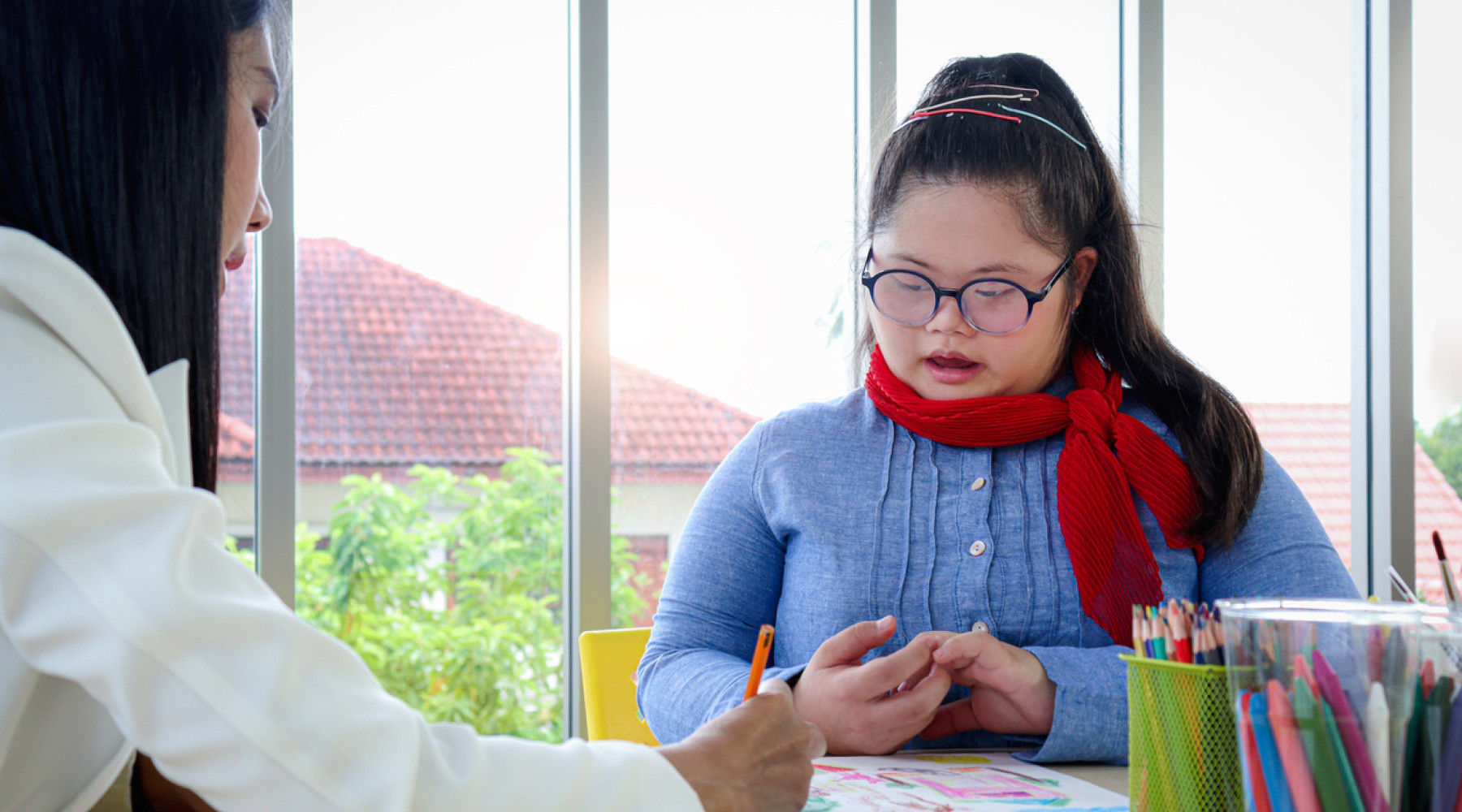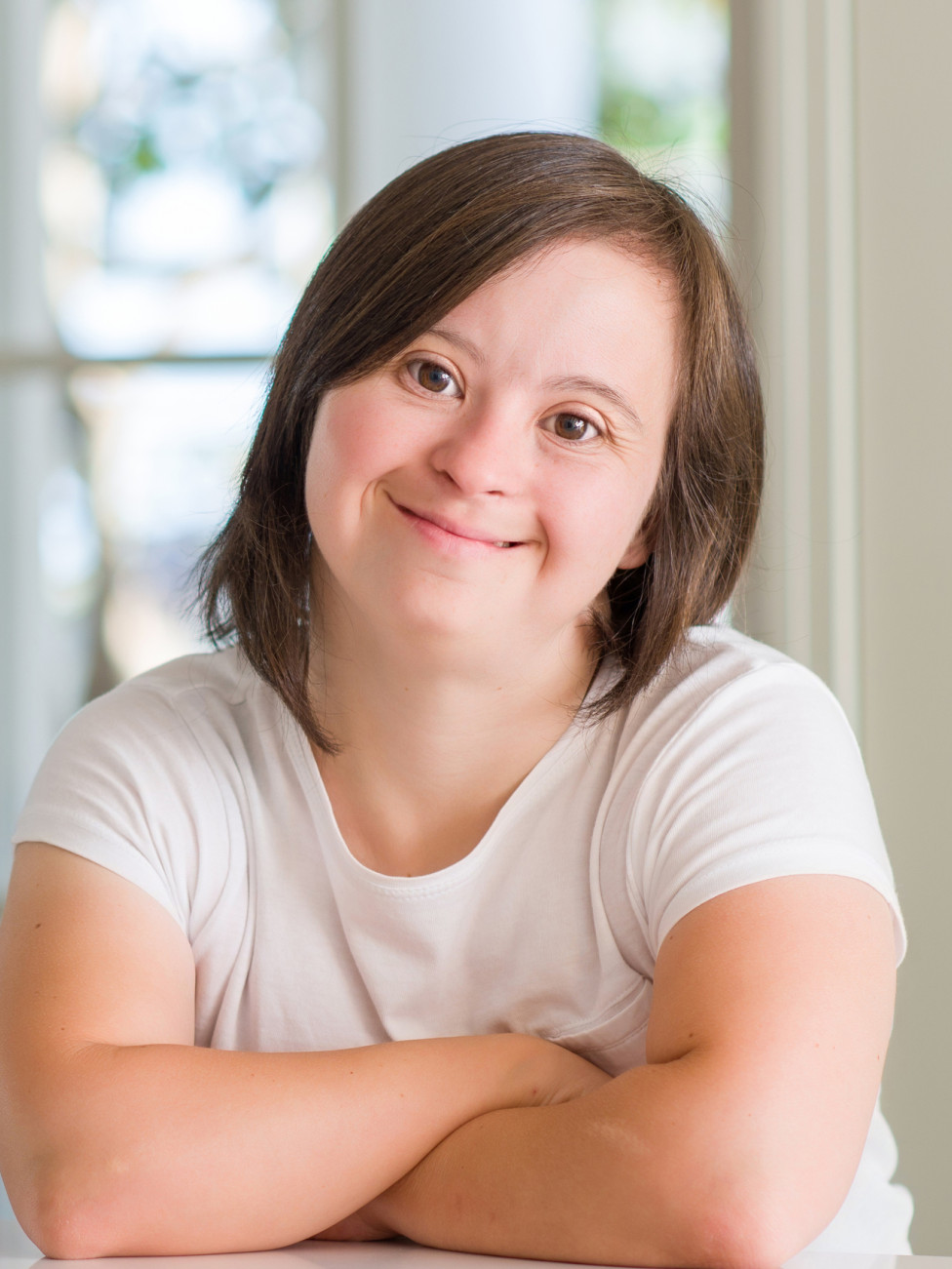What NDIS Support is Available for People with Down Syndrome?
30 November, 2023
A diagnosis of Down Syndrome will always result in some unique challenges and opportunities for individuals and their families. However it's important to remember that those with Down syndrome have the same goals and desires as everyone else - to live fulfilling, productive lives. And like everyone else, reaching those goals requires the right kind of support.
Thankfully, in Australia, the National Disability Insurance Scheme (NDIS) can be a potential source of such support for people with Down syndrome. However, NDIS support is not automatic and it's important for individuals to understand how best to use it.
So, in this blog post, we will explore NDIS eligibility and the supports available, aiming to empower individuals with Down Syndrome and their families to lead fulfilling lives.

The Facts on Down Syndrome in Australia
The NDIS plays a crucial role in providing support and resources to enhance the lives of people with Down Syndrome and their family members in Australia.
Down Syndrome is one of the most common chromosomal conditions in Australia. Down syndrome affects roughly one out of every 1,100 newborns, translating to approximately 290 new babies born with Down syndrome each year. Up to 15,000 people currently live with the condition in Australia.
Support needs differ for those with Down Syndrome, from none at all, to support once a week, to daily support systems and to full time support where necessary.
Down Syndrome Support Services and the NDIS
Thankfully, the NDIS can allocate funding for individuals with Down syndrome, categorising it as a List B condition, likely to result in permanent impairment. However, to qualify for NDIS funding, individuals must meet the following criteria:
Age: The person must be between 9 and 65 years old.
Residency: They must be living in Australia and hold Australian citizenship, permanent residency, or have a Protected Special Category visa.
Disability: Down syndrome significantly must diminish the individual's functional capacity through physical or intellectual disability. It's important to recognise that individuals with Down syndrome aged 9 and above are not automatically eligible for NDIS funding.
NDIS Funding Is Not Automatic
To initiate the application process, it is necessary to complete an access request form and submit evidence of your disability.
Individuals also need to provide evidence demonstrating the impact of their disability on their everyday functioning.
Although NDIS funding is not automatic, this is not something to be afraid of, as a significant majority of those with Down Syndrome who apply for NDIS funding have their applications granted
What Counts as Good Evidence?
Presenting evidence of your disability is crucial for the NDIS decision-making process. To strengthen your case, your evidence should be:
Recent: The documentation should be current, reflecting your current circumstances and needs.
Authored by a Relevant Treating Health Professional: The evidence should be provided by a health professional who is directly involved in managing your primary disability.
Confirmation of Primary Disability: The documentation should explicitly confirm the nature of your Down syndrome disability.
Verification of Disability Impact: It should outline the specific ways in which your disability affects various aspects of your daily life.
Details of Past Treatments and Outcomes: The evidence should include information about previous treatments undergone and the outcomes achieved.
Description of Future Treatment Options and Expected Outcomes: Providing insights into potential future treatments and their anticipated outcomes adds depth to the evidence.

Who can provide evidence of your disability?
Collaborating with your treating health professionals is vital in obtaining the necessary evidence for your application.
The treating health professional responsible for providing evidence of your disability is the most suitable person to validate your primary disability and should have a history of treating you for a substantial duration, typically at least six months.
Common treating health professionals who can provide this evidence include:
General Practitioner (GP)
Paediatrician
Orthopaedic surgeon
Occupational Therapist
Speech Pathologist (Therapist)
Neurologist
Psychologist
Psychiatrist
Physiotherapist
Where Can I Get Help With My Application?
For assistance in making an Access Request, you can call 1800 800 110 or download the form online.
If you require support in filling out the form or making the call, your Local Area Coordinator, Early Childhood Early Intervention partner, or local NDIA office can provide assistance.
Down Syndrome Australia
Down Syndrome Australia and other Down syndrome associations are also available to offer guidance, as are quality service providers such as Focus Care. It can also be good to talk to other families affected by Down syndrome. Down Syndrome Australia also has some great NDIS resources.
It's also important to note that as of July, 2023 children below the age of 9 with Down Syndrome, can access NDIS funding through Early Childhood Early Intervention.
What Happens If My Application Is Approved?
Once eligibility for Down syndrome support is established, the NDIS works on an individualised planning approach, focusing on the unique goals, aspirations, and support requirements of each person.
The planning process involves discussing the individual's current situation, their goals and aspirations, and the types of supports and services they may require.

Man with Down Syndrom getting job coaching in his workplace as a part of the Supported Employment from NDIS funding
NDIS Down Syndrome Funding
NDIS funding can be utilised for various types of down syndrome care. These include:
Early Intervention Services:
Speech therapy, occupational therapy, and physiotherapy to address developmental delays.
Specialised early childhood interventions to enhance cognitive and motor skills.
Therapeutic Supports:
Counselling, art therapy and behaviour support to address emotional and behavioural challenges.
Assistance from psychologists or psychiatrists for mental health needs.
Assistive Technology:
Communication devices and software to enhance speech and language skills.
Mobility aids or adaptive equipment to improve independence of people with Down syndrome.
Community Participation:
Funding for social and recreational activities to enhance well being, encourage community engagement and participation in everyday activities.
Support for skill development programs to enhance independence.
Supported Employment:
Job coaching and workplace modifications to facilitate integration into the workforce for people with Down syndrome.
Ongoing support for individuals with Down syndrome in maintaining employment.
Home Modifications:
Adaptations to the home environment to improve accessibility and safety.
Specialised Training:
Training for support workers, caregivers or your family member to better understand and address the unique needs of individuals with Down syndrome.
Health Services:
Funding for health-related needs, including specialist appointments and therapies.
Capacity Building Programs:
Programs focused on building life skills and fostering independence.
Education Support:
Assistance with educational needs, including support in schools or specialised educational settings.
How Can Focus Care Help?
Focus Care is a registered NDIS provider offering both disability support and Support Coordination as a part of your NDIS plan.
We take the time to get to know you as a person, and focus on your individual goals and priorities. If you or your family member has Down Syndrome and is looking for support or is looking to apply to the NDIS, we're here to help. Please contact us today to see how we can help you work towards your goals.




